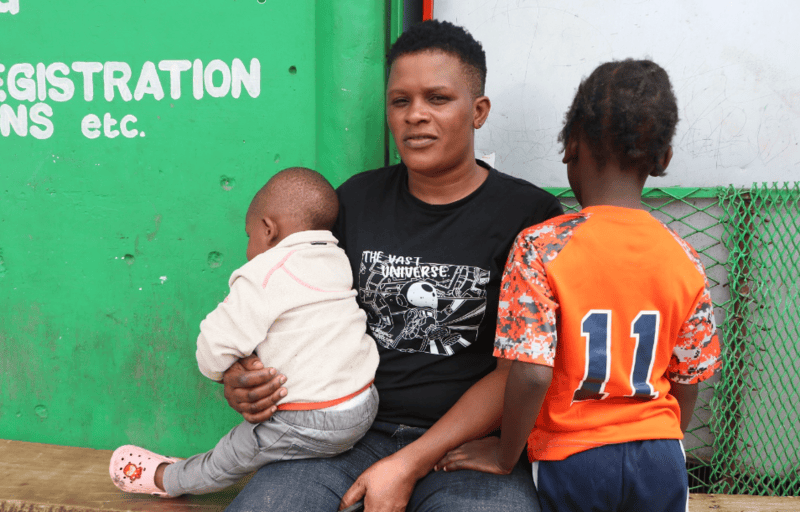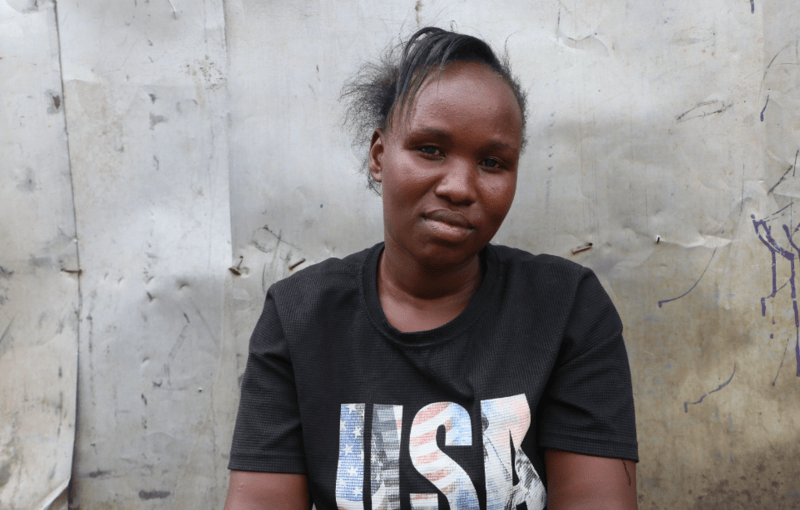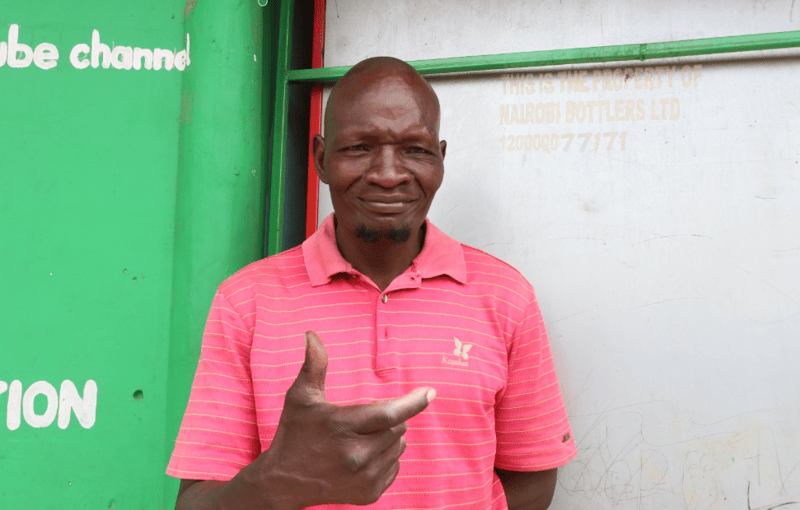Holiday Hurdles: Parents in slum areas share tactics for steering kids away from trouble

For parents raising children in slums, the holidays present unique challenges as they strive to balance work, provide for their children, and keep them safe during this vulnerable time.
Dorothy Mahero, a mother of four from Sofia Majengo, has been deeply troubled since schools closed for the holidays. Her primary concern is ensuring her children, especially her teenage daughter, remain safe and engaged during this challenging time. In slums like Majengo, issues such as gender-based violence, teenage pregnancy, and drug abuse are prevalent, making parenting particularly daunting.
“I usually sit my children down and talk to them plainly about our society. I advise them that not everyone cares about the education or well-being of other people’s children. We have seen cases of children being lured into dangerous situations, including inappropriate relationships with school-going peers.”
More To Read
- Gender CS Cheptumo calls for collective action against teenage pregnancies
- Teenage pregnancy key driver of preterm births in Africa, studies show
- Beyond birth: The silent struggles of teenage mothers
- Barriers to care: How systemic failures endanger teenage mothers in Kenya
- Hidden risks of over-the-counter drugs in early pregnancy
- Teen pregnancy declines nationally but Mandera sees sharp increase – KNBS report
Dorothy stresses her vigilance and commitment to keeping her children busy with studies, ensuring they don’t become idle or wander around the community. She makes it a point to understand the friends her children choose, knowing how influential these relationships can be.
“For my boys, I’ve sent them to help their grandfather manage his shop in Gikomba. This way, he can keep an eye on them while also teaching them valuable business and survival skills. When they are occupied, they can focus better—that’s my strategy.”
She urges fellow parents in the slum to maintain open communication with their children, monitor their friendships, and enforce boundaries. “That’s what will help them navigate these challenges,” she insists.
For parents raising children in slums, the holidays present unique challenges as they strive to balance work, provide for their children, and keep them safe during this vulnerable time.
 Lydia Kawira, a resident of a Highrise informal settlement within Kamukunji sub-county gives her opinion to Eastleigh voice during an interview on October 28 2024. (Photo: Justine Ondieki).
Lydia Kawira, a resident of a Highrise informal settlement within Kamukunji sub-county gives her opinion to Eastleigh voice during an interview on October 28 2024. (Photo: Justine Ondieki).
Lydia Kawira, a mother from Sofia who is currently job hunting, has made the tough decision to send her nine-year-old daughter to live with her grandmother.
This choice stems from her struggle to focus on finding work while ensuring her daughter's safety. Lydia knows all too well the risks children face when left unsupervised, especially in a community where exploitation can occur.
“We’ve seen young children in lower primary getting involved with drugs. It’s hard to keep track of them when you’re just trying to provide for your family.”
Lydia recognises that addressing these issues can be complicated, particularly because they involve children. “Some parents don’t take feedback well and can react negatively when such situations are brought to light,” she explains.
She recounts a recent tragedy in which a woman was stabbed to death following a conflict involving children.
“This serves as a wake-up call for all of us. I encourage fellow parents to look out for our children and to be open to feedback if a neighbour shares concerns about where your children are or if they’re getting into trouble.”
Nanya Jamila, a mother of three living in Highrise Majengo, is committed to her children’s education and safety. To keep them engaged and off the streets, she has invested in both tuition and madrasa.
“Every day, I send my children to madrasa to learn about the principles of Islam. It keeps them busy and is beneficial since I’m working and don’t have the time to watch over them.”
She acknowledges that micromanaging her children is challenging, especially with the temptations around, such as video halls where some individuals might expose them to inappropriate content.
“We face a big challenge. While we try to teach our children the right values, the society around us isn’t always supportive. It’s crucial for parents to take responsibility and know their children inside and out—who they talk to and what those individuals say to them—to ensure their safety.”
 Benard Achieng, a father of nine children at Sofia Majengo, during a street interview on October 28, 2024. (Photo: Justine Ondieki).
Benard Achieng, a father of nine children at Sofia Majengo, during a street interview on October 28, 2024. (Photo: Justine Ondieki).
Nanya emphasises the importance of being cautious, even when it comes to trusting neighbours or caregivers. “It’s vital to do a background check before leaving your children with someone.”
Benard Achieng, a resident of Pumwani with teenage children, prioritises open communication with them, understanding that challenges can quickly become overwhelming without it.
“I realised that if you don’t make your children your friends, things can happen without you even knowing. That’s why we sit down regularly to talk. I make sure they understand the realities of the streets and the consequences of being careless,” he explains.
He also notes the importance of extracurricular activities during the holidays. “The availability of different tournaments and football games provides a great opportunity for children to explore their talents and stay engaged.”
“My children currently participate in various sports and tournaments, which has created a safe space for them to develop their skills and avoid negative influences,” Benard adds.
He notes that fostering a strong relationship with his children and encouraging their participation in constructive activities helps create a supportive environment for their growth.
A report from the African Institute for Development Policy (AFIDEP) reveals that Kenya ranks third globally in teenage pregnancies, with a total of 175,488 cases reported.
The 2022 Kenya Demographic and Health Survey (KDHS) key indicators report, published by the Kenya National Bureau of Statistics, highlights progress in reducing the prevalence of female genital mutilation (FGM), teenage pregnancy, and gender-based violence. However, significant disparities still exist based on wealth, geographic location, and education.
Conducted at the household level, the survey indicates that the teenage pregnancy rate has decreased to 15 per cent in 2022, down from 18 per cent in 2014.
The data shows a clear link between poverty, lack of education, and higher rates of adolescent pregnancy. Approximately 40 per cent of women aged 15-19 with no education have experienced pregnancy, compared to just 5 per cent of those with more than a secondary education.
Teen pregnancies are also more prevalent in poorer communities, with 21 per cent of women aged 15-19 in the lowest wealth quintile reporting pregnancies, compared to only 8 per cent in the highest wealth quintile.
Counties with the highest rates of teenage pregnancy include Samburu at 50 per cent, West Pokot at 36 per cent, Marsabit at 29 per cent, and Narok at 28 per cent. In contrast, Nyeri and Nyandarua counties report the lowest rates, each at 5 per cent.
Top Stories Today














































